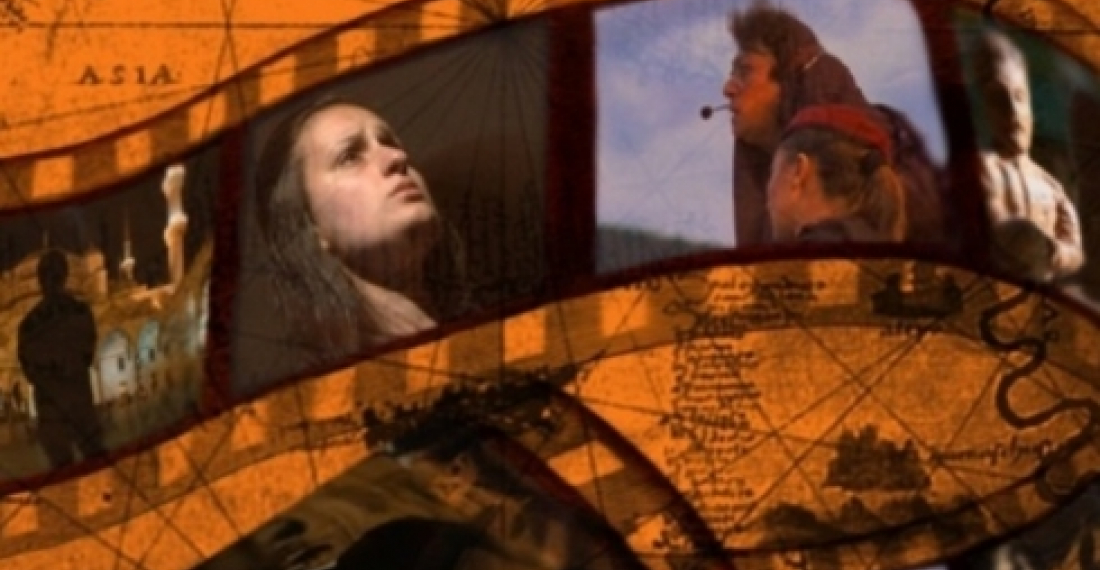In March London-based NGO and EPNK member Conciliation Resources brought the film-makers behind Memories Without Borders, a new Armenian-Azerbaijani-Turkish documentary film, to participate at the film's first screenings in Brussels, Paris and London. Part of the ongoing Dialogue Through Film initiative, Memories Without Borders explores how recollections of recent and long-gone troubles transcend the closed borders dividing communities and lives today.
Featuring perspectives from people living in four locations - Istanbul, the contested territory of Nagorny Karabakh, the Azerbaijani capital of Baku and southern Armenia - the film explores different personal experiences of exclusion and discrimination, family silences on heritage, contesting official history and remembering violence. Running through all the stories told in Memories Without Borders are common threads of unresolved violence spanning generations.
The film is the result of a two-year collaboration between a group of Turkish, Armenian and Azerbaijani filmmakers, coordinated by Conciliation Resources and supported by the European Union. The film was made by the Internews Media Support NGO (Yerevan), Internews Azerbaijan Public Association (Baku), the Stepanakert Press Club and CAM Film (Istanbul. It was made without a common language among the production teams, without access to each other's countries and with only two meetings, one at the beginning and one at the post-production phase.
While the four chapters reflect very different moods in societies in Turkey, Nagorny Karabakh, Azerbaijan and Armenia, they all imply, whether explicitly or implicitly, that the quest for the recognition of past wrongs cannot be 'privatised' by national community. It is only when this quest is universal that the past can be dealt with constructively. Memories Without Borders represents an aspiration to a future when Turkish, Armenian and Azerbaijani memories will be more complete, when narratives of victimhood are balanced with acknowledgement that all parties have been perpetrators too, and emblematic events of national suffering are learnt about alongside even-handed treatment of the suffering of others.
Reactions to Memories Without Borders in Brussels, Paris and London among audiences including both local and visiting Armenians, Azerbaijanis and Turks, have been varied. The more negative reactions included perceptions that the film fails to include perspectives from all of the relevant communities, and that it does not offer positive role models especially for Armenian-Azerbaijani co-existence. These reactions say a lot about expectations of a "peacebuilding film". On one level, some viewers expect specific formats and interpretations of the conflict to be replicated in film. For example, if the story of a refugee from one side is told, some viewers felt that a symmetrical story from the other side is required. On another level, there is for some (but by no means all) viewers a desire to see on screen idealised visions of ethnic harmony and cross-conflict relationships. Some viewers found the film insufficiently hopeful.
The film also met with positive reactions. Several viewers commented on the 'kindness' evident in the film. Although traumatic events are remembered and retold, there is a notable absence of recrimination. Others commented on the willingness of the directors and production teams to challenge the stereotypes and clichés in their own societies. For example, one viewer concluded that far from being a film about 'repatriation' or settlement of occupied territories, the second chapter 'Avetis' (filmed in Karabakh) is really about the unexpected directions taken by a boy's rebellion against his father. The nationalist fervour of a diasporan Armenian in this film is revealed as incidental to a deeper family crisis. The underlying question is whether we can make peace without resolving crises in our personal relationships.
Other viewers saw hope and the possibility of change in Armenian-Azerbaijani relations from their juxtaposition with Armenian-Turkish relations. The Turkish chapter, 'Lost&Found', presents stories of constructed, chosen and incidental identities among its three protagonists. Armenian-Turkish relations do not have to be hostage to established stereotypes and clichés, and identities may be multiple and fragmented. In this way, in the words of one viewer in London, they may find a way to meet each other and reach accommodation.
The discussions following the screenings covered a wide range of topics reaching beyond film, including the incentives for trade between Armenians and Azerbaijanis, the democracy deficit in Armenia and Azerbaijan and the role of creative arts in reconciliation. Overall, the capacity of film to open questions, within individuals, and both within and across communities, was clear both at these events and in the presentations of the film in Turkey and the Caucasus last October. This is perhaps not the most conventional 'peacebuilding film', but it supports the notion that peacebuilding films are not about offering solutions but but about posing questions. If life does indeed imitate art, and viewers come away from Memories Without Borders posing new questions of themselves and the conflict they are living through, then the film will have succeeded.
Memories Without Borders can be watched online here
This article appeared for the first time in the first issue of CommonspaceExtra
photo: The cover picture of the documentary film Memories without Borders (picture courtesy of Conciliation Resources.)







